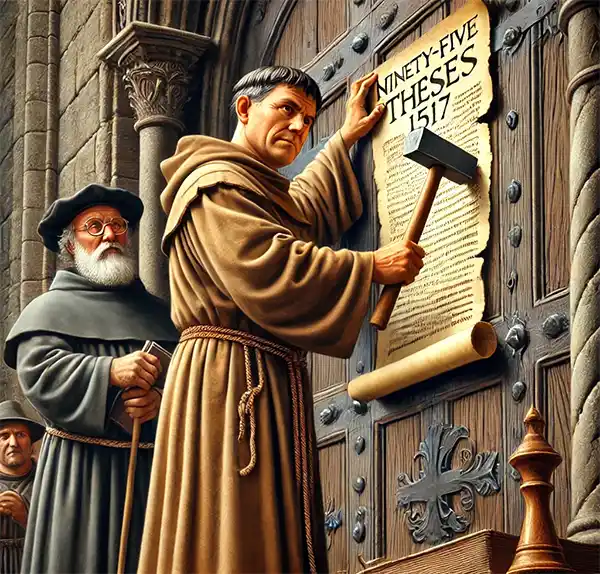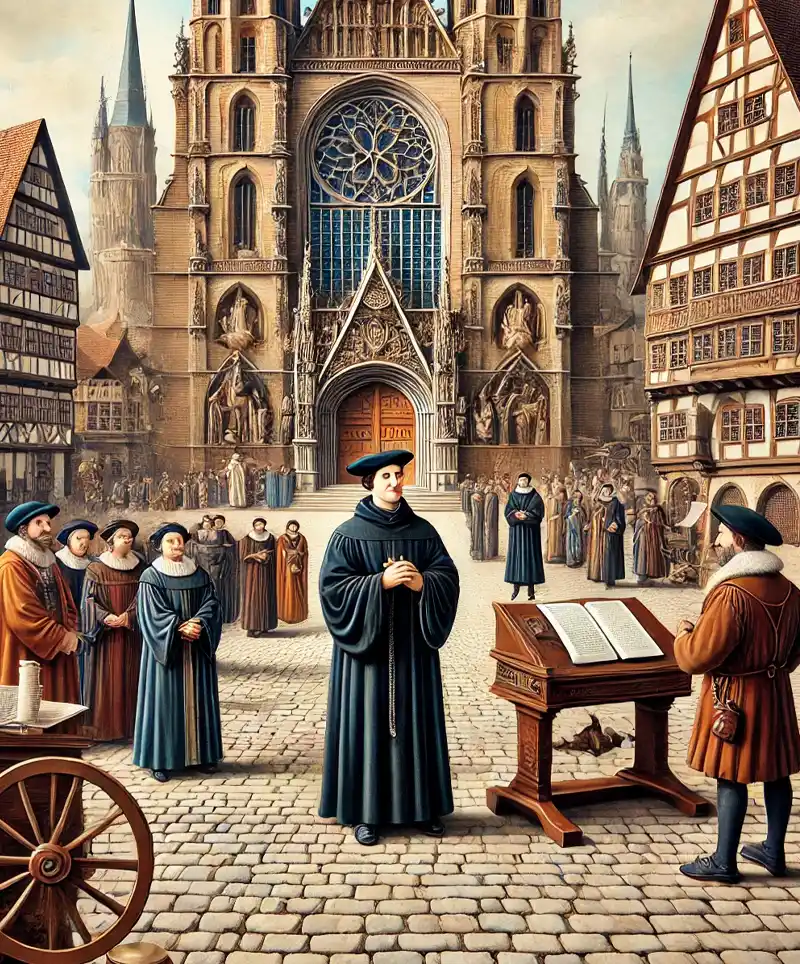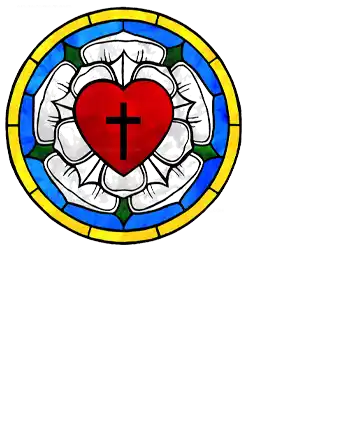When Martin Luther Went Viral (16th-Century Style)
Every October 31, just as trick-or-treaters gear up, history buffs gather around for Reformation Day, celebrating the moment Martin Luther allegedly nailed his Ninety-Five Theses to a church door in Wittenberg, Germany. It was 1517, and this simple act sparked an era-altering theological debate that would challenge the powerful Catholic Church and, over time, reshape the entire landscape of Western Christianity.
The Man with a Hammer and Some Very Specific Opinions
Luther, a German monk with a keen sense for spotting hypocrisy, had long struggled with his conscience and the teachings of the Church, especially around indulgences. For a fee, indulgences were said to shave years off a person’s time in purgatory. This pay-for-prayer model struck Luther as downright crooked. So, he took to pen and paper (and hammer and nails) to raise his concerns with the world—or at least the residents of Wittenberg.
These Ninety-Five Theses didn’t mince words. Each statement laid bare the issues he saw in Church practices, from the morality of indulgences to what he viewed as a lack of spiritual transparency. Originally written in Latin for a scholarly audience, the theses quickly went viral, translated into German, and spread across Europe by the newly invented printing press.
Indulgences
Indulgences weren’t exactly new in 1517, but they’d reached a fever pitch under Pope Leo X, who needed funds for projects like St. Peter’s Basilica. Enter Johann Tetzel, the poster boy for indulgences, whose slogan could’ve easily been, “As soon as a coin in the coffer rings, a soul from purgatory springs!” To Luther, this wasn’t just bad theology—it was a spiritual racket.
With biting wit, Luther argued that if the Pope could release souls from purgatory, he should do it out of compassion, not for cold, hard cash. His call for reform was radical, and it got people talking—both for and against his ideas.
How a Quiet Monk Sparked a Religious Revolution
Luther’s theses turned him into an overnight theological celebrity (and enemy). His followers—known as Protestants, from the Latin word protestari, meaning to bear witness—found his ideas refreshing. This new “protesting” spirit fueled other reformers like John Calvin and Huldrych Zwingli, who joined the debate with their own ideas, essentially kicking off a Europe-wide theological showdown.
 Suddenly, Europe had a new brand of Christianity. Known as Protestantism, this broad movement sparked doctrinal diversity, new denominations, and theological debates that shaped Western history for centuries to come.
Suddenly, Europe had a new brand of Christianity. Known as Protestantism, this broad movement sparked doctrinal diversity, new denominations, and theological debates that shaped Western history for centuries to come.
Reformation Day Traditions
Though the Reformation itself was no laughing matter, today’s Reformation Day traditions vary widely and sometimes take on a lighter tone. In some German communities, you’ll see Luther-impersonators, humorously re-enacting that infamous door-nailing moment. The Lutherans especially make a day of it, with sermons reflecting on theological freedom, history, and the very human mistakes that made it all necessary.
In parts of Germany, Reformation Day is a public holiday where people break bread and remember the significance of this era, often with local pastries or Lutherbrot (a simple loaf, served in Luther’s honor). This mix of reverence and celebration serves as a light-hearted nod to a figure who loved a hearty meal and good conversation.
It’s worth noting that Luther wasn’t known for holding back. When he disagreed, he said so plainly and with colorful language that even his supporters found a bit… shall we say, fiery. Luther’s personality made him both a legend and a source of amusement. He reportedly called the Pope the “antichrist,” and referred to himself as “a simple monk” who just wanted some straight answers. Imagine him today as that friend who holds court at gatherings, occasionally raising eyebrows but always keeping things lively.
And his wit didn’t end there. Luther’s response to critics was often sharp and sarcastic, like his suggestion that they spend less time attacking him and more time “reading their Bibles.” His writings became a source of theological fire and occasional eyebrow-raising phrases. But it worked. Luther’s words left an impression, and his humor, while biting, resonated with the common folk, bringing complex theological debates into everyday parlance.
The Reformation’s Long Shadow
While Martin Luther’s hammer set off a religious transformation, the ripple effects went far beyond church doors. The Reformation ushered in an era of questioning that reached every corner of society. Luther’s challenge to religious authority planted the seed for the Enlightenment, an age when people began to scrutinize traditional institutions and demand rational explanations for longstanding beliefs.
One of the most profound impacts of the Reformation was the idea of individualism in faith and thought. Before Luther, religious understanding was centralized; the Church interpreted Scripture, and the people followed. But by translating the Bible into German, Luther made it accessible to the average person, essentially saying, “You can read and decide for yourself.” This act sparked a powerful cultural shift, where individual conscience and personal responsibility became new ideals—not just in matters of faith but in civic life as well.
Political structures also shifted, with some rulers seeing an opportunity to assert their own independence from the Pope’s authority. This led to new alliances, as Protestant rulers separated from Catholic countries, reshaping Europe’s political map. The Reformation encouraged democratic ideals and the right to question authority—ideas that later influenced documents like the U.S. Constitution and other democratic principles.
Beyond that, education itself became a priority. To create an informed society capable of reading and understanding Scripture, Protestant regions championed literacy, resulting in a spread of schools and universities across Europe. This commitment to learning became part of the culture in Protestant nations, contributing to scientific advancements, philosophical discourse, and a society more open to the exchange of ideas.
From the spread of literacy to the foundation of modern democracy, Luther’s call for reform was, in many ways, a catalyst for a cultural revolution. Today, Reformation Day isn’t just about commemorating one man’s protest; it’s a celebration of the power of questioning, the value of knowledge, and the courage to stand up for change.
Celebrating Reformation Day Today
If you’re looking to observe Reformation Day, here are a few contemporary ideas to mark the day:
- Visit a Local Church or History Exhibit: Many churches offer talks or exhibits on the history of the Reformation, detailing the events and people involved.
- Read Some Luther Quotes: Dive into Luther’s works—though keep in mind his language was famously, let’s say, direct. Be prepared for a few eyebrow-raising lines!
- Try German Pastries: Reformation Day is a great excuse to indulge in German treats, from Lutherbrot to Stollen. Luther’s Germany is rich with delicious baked goods, perfect for a historically inspired snack.
- Engage in a Debate: Luther loved a good debate, so gather some friends, pick a topic, and see where the discussion leads. Just try not to call anyone “antichrist.”
From his hammer-wielding moment at the Wittenberg door to the spread of new ideas across Europe, Martin Luther’s Reformation Day remains a time for both reflection and a little lighthearted appreciation of this historical change-maker’s boldness. In the spirit of Luther, ask questions, seek understanding, and, if possible, enjoy a pastry or two!
Please Share our Content






 Suddenly, Europe had a new brand of Christianity. Known as Protestantism, this broad movement sparked doctrinal diversity, new denominations, and theological debates that shaped Western history for centuries to come.
Suddenly, Europe had a new brand of Christianity. Known as Protestantism, this broad movement sparked doctrinal diversity, new denominations, and theological debates that shaped Western history for centuries to come.








 "Sláinte!" is a traditional Irish expression used as a toast, equivalent to "Cheers!" in English.
"Sláinte!" is a traditional Irish expression used as a toast, equivalent to "Cheers!" in English.